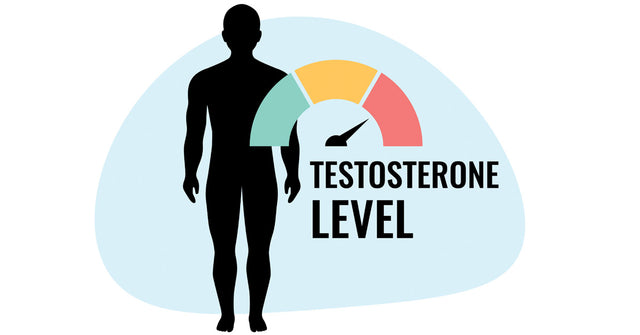Introduction to Dry Orgasm
A dry orgasm, also known as a dry climax or non-ejaculatory orgasm, occurs when an individual experiences the sensations of orgasm without the release of semen. This can happen in various scenarios, such as due to medical conditions, certain medications, or after specific surgical procedures. While the physical sensations of orgasm are present, the absence of ejaculation can affect both sexual experience and psychological well-being. Understanding the causes and implications of dry orgasms is important for managing and addressing any associated concerns.
Dry Orgasm Vs. Typical Orgasm
A dry orgasm differs from a typical male orgasm in that it lacks the release of semen. While a typical male orgasm involves both the pleasurable climax and ejaculation, a dry orgasm provides the sensation of orgasm without any semen being expelled. This distinction is important for understanding variations in sexual experience and addressing any underlying issues related to ejaculation.
Types of Dry Orgasms
-
Retrograde Ejaculation: This occurs when semen is redirected into the bladder instead of being expelled through the penis during orgasm. Individuals experience orgasmic sensations without the typical outward ejaculation.
Cause: This is often caused by medical conditions, certain medications, or after prostate surgery.
-
Post-Surgical Dry Orgasm: This type of dry orgasm may result from surgical procedures such as prostatectomy or vasectomy, which can affect the ejaculation process.
Cause: Surgery can disrupt the normal ejaculation pathways, leading to a dry orgasm.
-
Psychological Dry Orgasm: In some cases, psychological factors such as stress, anxiety, or performance pressure can lead to orgasm without ejaculation.
Cause: Emotional and mental state influences sexual function and response.
-
Chronic Dry Orgasm: This occurs when an individual consistently experiences orgasm without ejaculation over a prolonged period.
Cause: This may be associated with chronic conditions or ongoing medication side effects.
Causes of Dry Orgasm
1. Medical Conditions
- Nerve Damage: Damage to the nerves controlling ejaculation can prevent semen release during orgasm.
2. Medications
- Side Effects: Certain medications, such as antidepressants or antihypertensives, can interfere with the ejaculation process, leading to a dry orgasm.
3. Surgical Procedures
- Prostatectomy: Surgery to remove the prostate can affect the ejaculatory pathways, resulting in a dry orgasm.
- Vasectomy: This procedure can block the flow of semen, sometimes leading to dry orgasms.
4. Psychological Factors
- Stress and Anxiety: Psychological issues such as stress or performance anxiety can impact sexual function, leading to orgasm without ejaculation.
5. Dry Sex
- Lack of Lubrication: Engaging in dry sex, or sex without adequate lubrication, can sometimes affect the sexual experience and may lead to a dry orgasm or reduced ejaculation.
6. Hormonal Imbalances
- Altered Hormone Levels: Imbalances in hormones, such as testosterone, can affect the normal process of ejaculation and result in a dry orgasm.
Symptoms and Diagnosis of Dry Orgasm
Symptoms
- Absence of Ejaculation: The primary symptom is experiencing orgasm without the release of semen. Individuals may still feel the pleasurable sensations associated with orgasm, but no semen is expelled.
- Discomfort or Pain: Some individuals might experience discomfort or pain, especially if they have not ejaculated for a while. This can result from the buildup of semen or tension in the reproductive organs.
- Reduced Sexual Satisfaction: The experience of orgasm without ejaculation may affect overall sexual satisfaction and pleasure.
- Frequent Dry Orgasms: Regular occurrences of dry orgasms may indicate an underlying issue that needs to be addressed.
Diagnosis
1. Medical History and Physical Examination
- Process: A healthcare provider will review medical history and perform a physical examination to assess symptoms and identify potential underlying causes.
2. Diagnostic Tests
-
Semen Analysis: Testing semen for sperm motility and other factors can help determine if there are issues with ejaculation or sperm release.
-
Urinary Analysis: In cases of suspected retrograde ejaculation, urine tests may be conducted to check for semen in the bladder.
3. Specialized Imaging
- Imaging Studies: Ultrasounds or other imaging techniques may be used to examine reproductive organs and identify structural or functional issues.
4. Hormonal Testing
- Testing Hormone Levels: Blood tests to assess hormone levels can help diagnose hormonal imbalances affecting ejaculation.
Impact of Dry Orgasm on Sexual Health
-
Reduced Pleasure and Satisfaction: Dry sex, which involves sexual activity without sufficient lubrication, can lead to discomfort and reduced pleasure. The absence of natural or added lubrication can cause friction and irritation, impacting overall sexual satisfaction.
-
Increased Risk of Friction-Related Injuries: The lack of lubrication during dry sex can result in physical irritation or micro-tears in the genital tissues. This can cause pain, bleeding, or increased risk of infections.
-
Potential for Dry Orgasms: Engaging in dry sex may affect the normal sexual response and potentially lead to dry orgasms. The discomfort from insufficient lubrication can interfere with the ejaculation process, leading to orgasm without semen release.
-
Impact on Relationship Dynamics: Persistent discomfort or dissatisfaction from dry sex can strain sexual relationships. Open communication and addressing sexual health issues are crucial for maintaining healthy intimacy.
-
Use of Supplementary Products: Some individuals may turn to products like Virectin, a supplement designed to enhance sexual function, to address issues related to reduced pleasure or sexual dysfunction. While Virectin may help with aspects of sexual health, it is essential to consider proper lubrication and address the root causes of discomfort.
Management and Treatment
- Use Lubricants: Apply water-based or silicone-based lubricants to reduce friction and enhance comfort during sexual activity. This can alleviate irritation and improve overall pleasure.
- Improve Communication: Discuss any discomfort or issues with your partner openly. Effective communication can help adjust sexual practices to ensure mutual satisfaction and comfort.
- Address Underlying Issues: Identify and address any underlying causes of dryness, such as hormonal imbalances or medications. Consult a healthcare provider for appropriate solutions.
- Seek Medical Advice: If discomfort persists or leads to persistent issues, consult a healthcare professional for a thorough evaluation and personalized treatment options.
Takeaway
Dry orgasm, where one experiences orgasm without ejaculation, can stem from various causes including medical conditions, medications, or psychological factors. While it often doesn't pose significant health risks, it can affect sexual satisfaction and emotional well-being. Addressing underlying causes through medical consultation, managing any discomfort, and exploring treatment options can help improve the sexual experience and overall health.More stories

Step-by-Step Guide to Erectile Dysfunction Exercises





